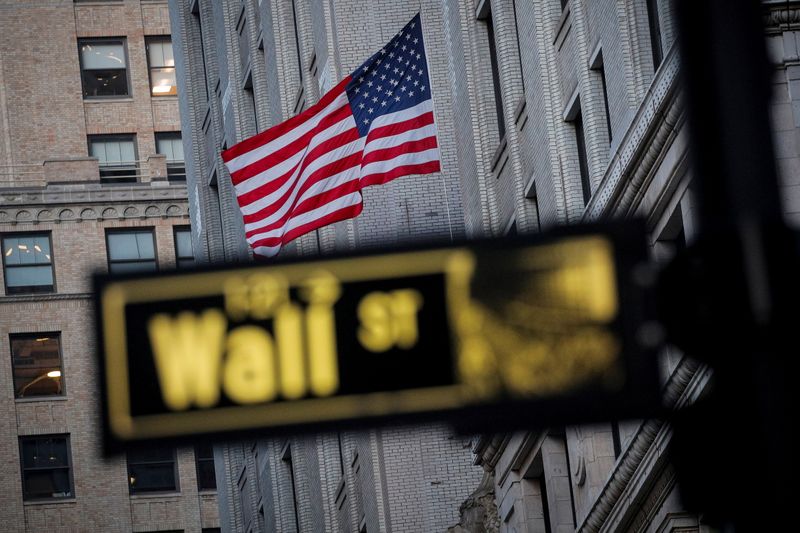By Geoffrey Smith
Investing.com --Retail sales data for February will set the tone for the Federal Reserve’s two-day policy meeting that starts later. Industrial production and housing market data are also due. President Xi Jinping tells China’s top economic committee to crack down on regulatory loopholes favoring the country’s tech giants, while Europe’s inoculation campaign is in disarray over a politicized suspension of the AstraZeneca-Oxford University vaccine. Oil is coming further off the boil ahead of U.S. inventory data due later.
1. Data dump as Fed meets
The Federal Reserve starts a two-day policy meeting against the backdrop of a market that seems, for now, to have finished repricing its inflation expectations. The 10-year Treasury yield is steady at just over 1.60%. That may change if February’s retail sales data, due at 8:30 AM ET (1230 GMT), show signs of U.S. consumers rushing to spend in anticipation of the latest round of stimulus checks. January’s retail sales data had provided surprised sharply to the upside with a 5.3% gain, their biggest in seven months, but analysts expect a 0.5% decline in February. Also due are industrial production data for February at 9:15 AM ET, and the NAHB housing market index at 10 AM.
2. Europe’s 3rd wave builds as AZN vaccine suspended
A third wave of Covid-19 infections is building in Europe, with Germany, France, Italy and the Benelux countries all reporting rising infections. Germany’s Robert Koch Institute said on Tuesday that cases are again rising exponentially in the country.
The situation isn’t being helped by Europe’s ongoing efforts to sabotage its own vaccination program. A German decision to stop distributing the AstraZeneca-Oxford University vaccine on Monday led to France and Italy following suit. The Italian medicines regulator called it “a political decision”, while the European Medicines Agency, which is responsible for declaring medical products safe, repeated its opinion that the benefits of the vaccine outweigh any risks.
Elsewhere, Australia said it would distribute the AstraZeneca (NASDAQ:AZN) vaccine as planned, while Thailand’s Prime Minister received a shot of it on TV, as the country lifted the suspension it announced on Friday.
3. Stocks set to open mixed
U.S. stock markets are set to open mixed in narrow ranges later, with traders content to await the retail sales data and the outcome of the Fed meeting.
By 6:30 AM ET (1030 GMT), the Dow Jones futures contract was down 67 points, or 0.2%, while the S&P 500 futures contract was down less than 0.1%, and the Nasdaq 100 futures contract was up 0.4%, extending Monday’s pattern of outperformance.
Stocks likely to be in focus later include Facebook (NASDAQ:FB), which overnight reached a deal with News Corp (NASDAQ:NWSA) to pay for news in Australia, a precedent likely to have consequences in other countries too. Home builder Lennar (NYSE:LEN) will release earnings after the closing bell.
4. Xi calls for closure of ‘loopholes’ benefiting tech giants
Chinese President Xi Jinping reiterated the need for tighter regulation of the country’s Internet platform companies, stepping up a campaign that began late last year with the derailing of Ant Group’s IPO.
State TV reported Xi as telling the country’s top economic committee that China needs to “fill in gaps and loopholes in rules,” governing the sector. Tweaks to regulations of the kind described by Xi knocked billions of dollars off the valuation of Ant Group, an affiliate of Alibaba (NYSE:BABA), hitting the profitability of many of its financial services with new capital requirements.
Separately, reports said Xi had instructed Alibaba to relinquish control of the South China Morning Post, an icon of Hong Kong’s relatively free press.
5. Oil inventories
Crude oil prices continued to weaken ahead of U.S. inventory data later in the day from the American Petroleum Institute.
By 6:30 AM ET, U.S. crude futures were down 1.5% at $64.39 a barrel, while Brent crude futures were down 1.6% at $67.79 a barrel.
U.S. inventory data have been highly volatile in the last couple of weeks due to the effects of the cold snap in Texas, where refineries were only able to reopen gradually after being closed completely by the extreme weather. This week’s data are likely to show an increase in final demand for refined products, after the onset of the Spring Break drove U.S. air passenger numbers to their highest since the pandemic exploded last year.
